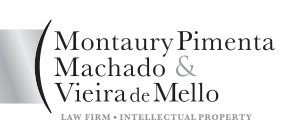Using brand names of a previous band without authorization consists on a trademark violation and represents parasitic exploitation and unfair competition practice, giving room to compensation to the trademark owner. However, such kind of use happens frequently among musicians who experienced a certain fame in the past as members of famous bands and now try to take some advantages on that in a solo career or with a new group.
Recently in Brazil, we had some legal disputes related to this topic, and some local major bands and their past and present members are all involved. Among them, the bands Cidade Negra, RPM and Legião Urbana. All 3 bands were very famous and made history in the Brazilian music scene in the past.
The Cidade Negra’s case is still far from over. Regarding RPM’s case, the São Paulo Court of Justice has found that the singer was banned from use the "RPM" brand name because it had already been agreed among past members, only to use the brand name of the band collectively and not individually, as he had been doing.
But one of the most emblematic cases is the dispute between the company Legião Urbana Produções Artísticas Ltda. (owned by the son of band leader Renato Russo, who regretely passed away many years ago), and the owner of several trademark registrations for the band name LEGIÃO URBANA, and its former members.
The lawsuit was filed by such former band members against the company Legião Urbana Produções Artísticas Ltda. The plaintiffs' allegations are that Russo, when still alive, made it clear that the band belonged to its three members: Villa-Lobos, Marcelo Bonfá, and Russo. They argue that they do not infringe Legiao Urbana’s trademark rights because they will always be Legiao Urbana’s members.
The plaintiffs also allege that they can not be prevented from using the band name Legião Urbana, even if they are not the actual trademark owners according to the trademark registrations granted by the Brazilian Patent and Trademark Office. Therefore, it is unacceptable that the existing registrations are being used in such an abusive way, excluding the plaintiffs from using their own work or even their artistic identity. A trademark that reproduces an artistic work cannot be used to exclude the author of such work from their own creation. Therefore, the protection of the authors of the creations from the music band Legião Urbana must prevail instead of the company's (defendant) trademark rights in question.
The defendant, which included Russo as the major partner as well as the past members of the band (including both plaintiffs), filed the first trademark applications for LEGIAO URBANA on September 16, 1987.
The defendant has presented its defense arguments alleging that after the first fillings for trademark applications for LEGIÃO URBANA, all three minor partners at that time, including the plaintiffs, decided to leave the company, assigning their shares to Russo, the remaining partner.
The plaintiffs were properly compensated at that time, giving full and irrevocable release for any other claim in court or elsewhere. Therefore, given that the plaintiffs left the society of their own will and gave full release for any other claim in court or elsewhere, with no other reservations for themselves in relation to any commercial use from the referred trademark, any plaintiff’s potential rights to keep using the LEGIÃO URBANA mark is something that only the courts could take a final position.
The trial court decision established that a band can be managed as a company, with the objective of generating profit, and it is even possible to formally constitute it as a such (with corporate registration, among others). But when it comes to registering the band's name as a trademark, it is necessary to take into account that behind this there is a cultural and authorial work carried out by the musicians who are part of it. And it was grounded on this understanding that the judge in the Legião Urbana case authorized the plaintiffs to use the band name in their musical presentations, despite not having attributed any co-ownership of the brand, the judge found that the plaintiffs participation in the creation of the band name "Legião Urbana" and in the projection of that mark through the group should prevail over the ownership rules and use of the mark.
The Trial Court decision was confirmed by the Brazilian Superior Court of Justice. The Superior Court found that the use of the band's name by the former members is part of the expression of their own identity, constituting a reflection of their personalities, which could not be restricted by the Industrial Property Law.
Thus, based on the social function of the property, the negative repercussion of the right of access to culture and the exercise of copyright, the plaintiffs are able to use the band name "Legião Urbana" in concerts , even without being the owners or licensees of the LEGIÃO URBANA trademark registration.
The decision, despite appearing to be reasonable, mainly from the artists' point of view and what the name "Legião Urbana" means to the public, from a legal point of view it is a very controversial . This is because, by allowing the plaintiffs to use the band name without having ownership or authorization to do so, the defendant has trademark rights over such band name.
The reality is that the Brazilian Judiciary, even if contrary to the technique, tried to balance this band name issue. However, it is important to mention that the plaintiffs can not make any use of the brand for any other commercial purpose, such as, for example, the licensing of different goods.
After all, Indigenous Peoples and local communities are bearers of ancient traditions and practices, yet constantly adapt to the world around them, enthused Mr. Wendland, noting: “Their cultures are dynamic and evolving, and they continue to be springs of creativity and innovation.”





